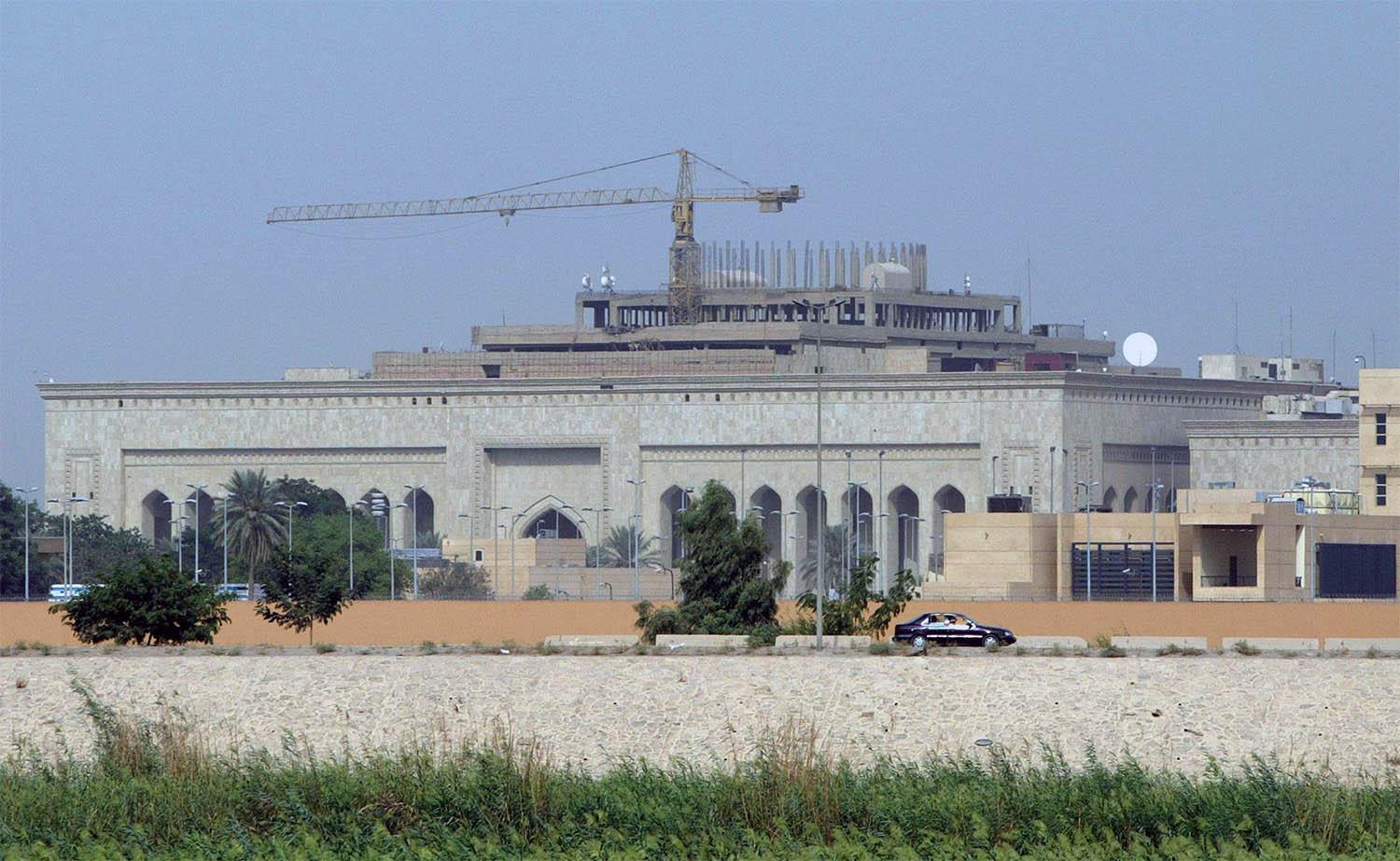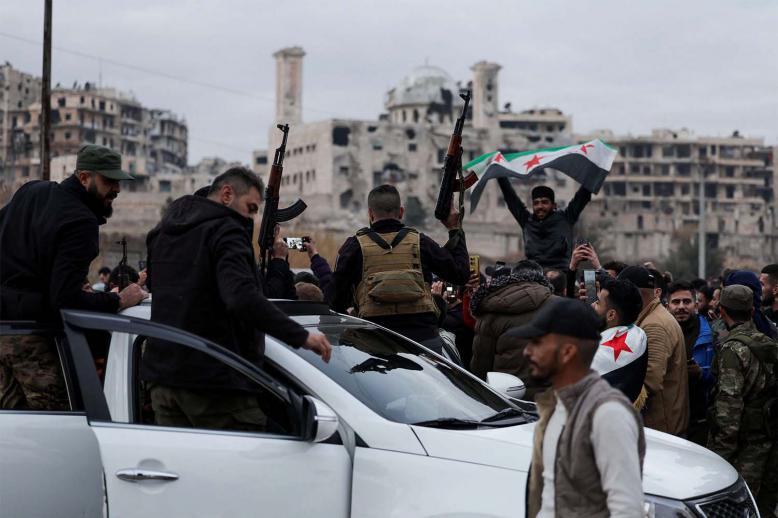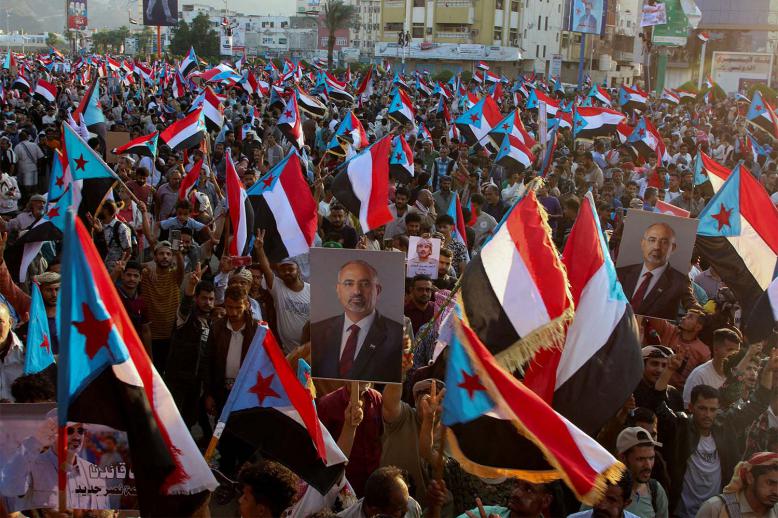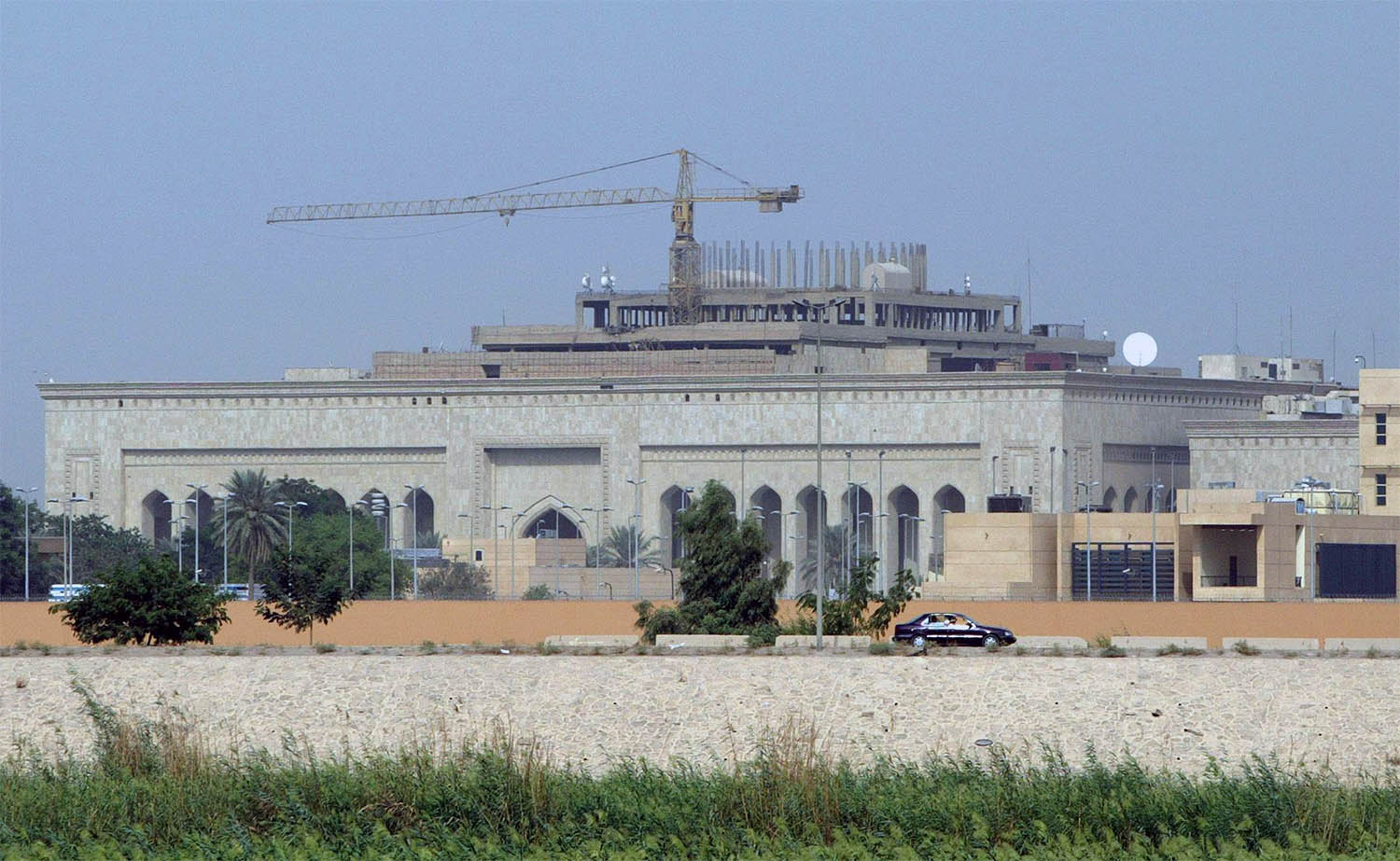US preparing to partially evacuate Iraq embassy over regional security risks
WASHINGTON/BAGHDAD - The United States is preparing a partial evacuation of its Iraqi embassy and will allow military dependents to leave locations around the Middle East due to heightened security risks in the region, US and Iraqi sources said on Wednesday.
The four US and two Iraqi sources did not specify which security risks had prompted the decision and reports of the potential evacuation pushed up oil prices by more than 4%.
"The State Department regularly reviews American personnel abroad and this decision was made as a result of a recent review," White House spokeswoman Anna Kelly told Reuters when asked about reports of the partial evacuations, without giving further details.
A White House official said US President Donald Trump was aware of the move.
The partial evacuations come at a moment of heightened tensions in a region already aflame after 18 months of war in Gaza that has raised fears of a wider conflagration pitting the US and Israel against Iran and its allies.
Trump has repeatedly threatened to strike Iran if stuttering talks over its nuclear programme fail and on Wednesday he said he was growing less confident that Tehran would agree to stop enriching uranium, a key American demand.
Iranian Defence Minister Aziz Nasirzadeh also said on Wednesday that if Iran was subjected to strikes it would retaliate by hitting US bases in the region.
The United States has a military presence across the major oil-producing region, with bases in Iraq, Kuwait, Qatar, Bahrain and the United Arab Emirates.
US Defense Secretary Pete Hegseth has authorized the voluntary departure of military dependents from locations across the Middle East, a US official said. Another US official said that was mostly relevant to family members located in Bahrain -- where the bulk of them are based.
"The State Department is set to have an ordered departure for (the) US embassy in Baghdad. The intent is to do it through commercial means, but the US military is standing by if help is requested," a third US official said.
Iraq's state news agency cited a government source as saying Baghdad had not recorded any security indication that called for an evacuation.
The US embassy in Kuwait said in a statement it "has not changed its staffing posture and remains fully operational."
Another US official said that there was no change in operations at Al Udeid Air Base in Qatar, the largest US military base in the Middle East and that no evacuation order had been issued for employees or families linked to the US embassy in Qatar, which was operating as usual.
TENSIONS
Oil futures climbed $3 on reports of the Baghdad evacuation with Brent crude futures at $69.18 a barrel.
Earlier on Wednesday Britain's maritime agency warned that increased tensions in the Middle East may lead to an escalation in military activity that could impact shipping in critical waterways. It advised vessels to use caution while travelling through the Gulf, the Gulf of Oman and the Straits of Hormuz, which all border Iran.
Iraq, a rare regional partner of both the United States and its arch regional foe Iran, hosts 2,500 US troops although Tehran-backed armed factions are linked to its security forces.
Tensions inside Iraq have heightened since the start of the war in Gaza in October 2023, with Iran-aligned armed groups in the country repeatedly attacking US troops, though attacks have subsided since last year.
Israel and Iran also twice exchanged fire last year - the first ever such direct attacks between the region's most entrenched enemies - with missiles and war drones hurtling across Iraqi airspace.
Top US regional ally Israel has also struck Iran-linked targets across the region, including Iraqi armed groups operating both inside Iraq and in neighbouring Syria.
The next round of nuclear talks between Iran and the United States are due in the coming days with Iran expected to hand over a counter proposal after rejecting an offer by Washington.
Iran's U.N. mission on Wednesday posted on X: "Threats of 'overwhelming force' won't change facts: Iran is not seeking a nuclear weapon and US militarism only fuels instability."
The statement appeared to be a response to an earlier comment by US Central Command chief US Army General Michael Kurilla that he had provided the president with "a wide range of options" to prevent a nuclear-armed Iran.






